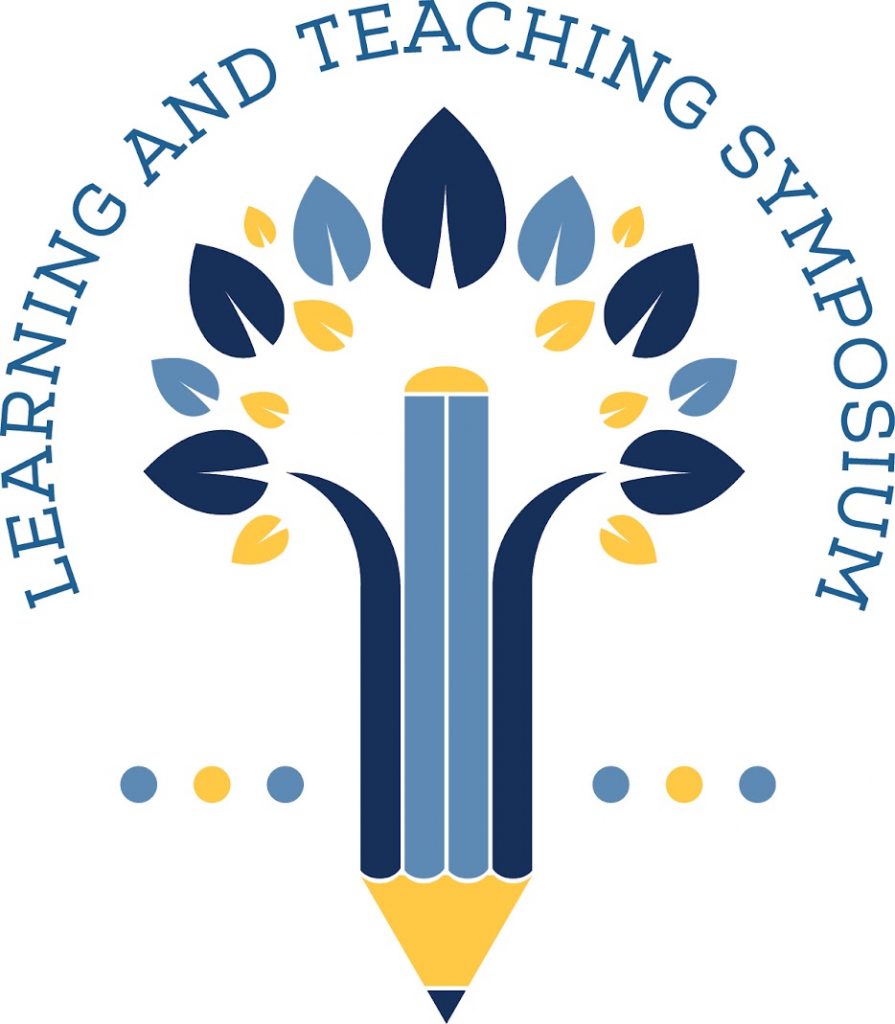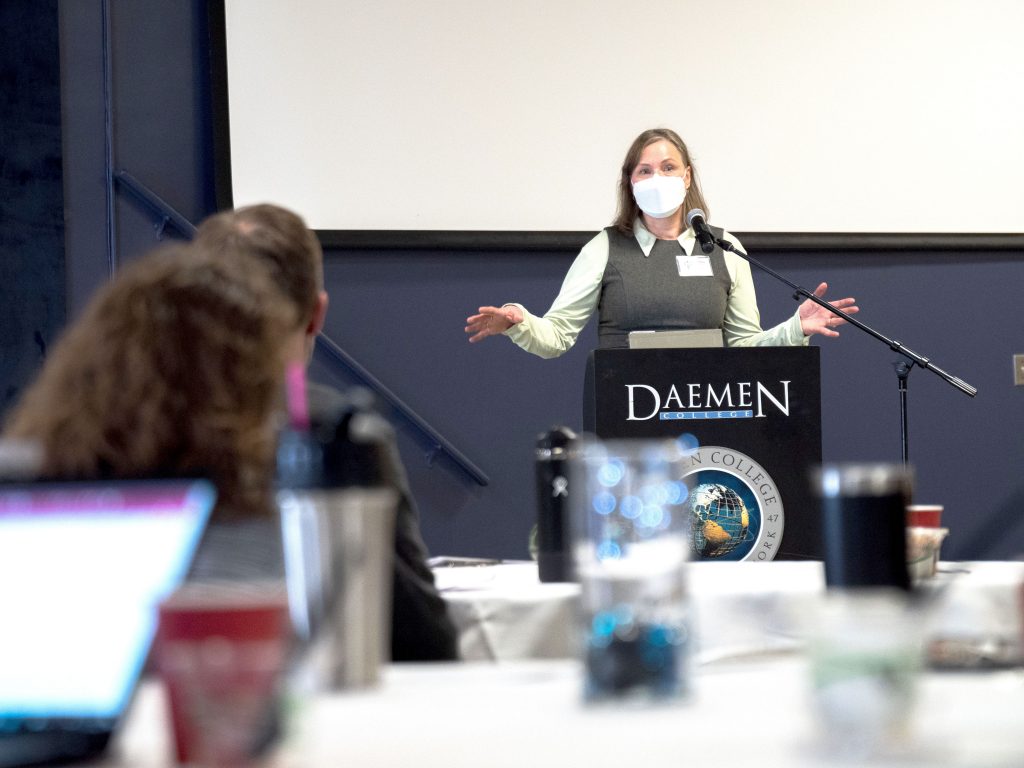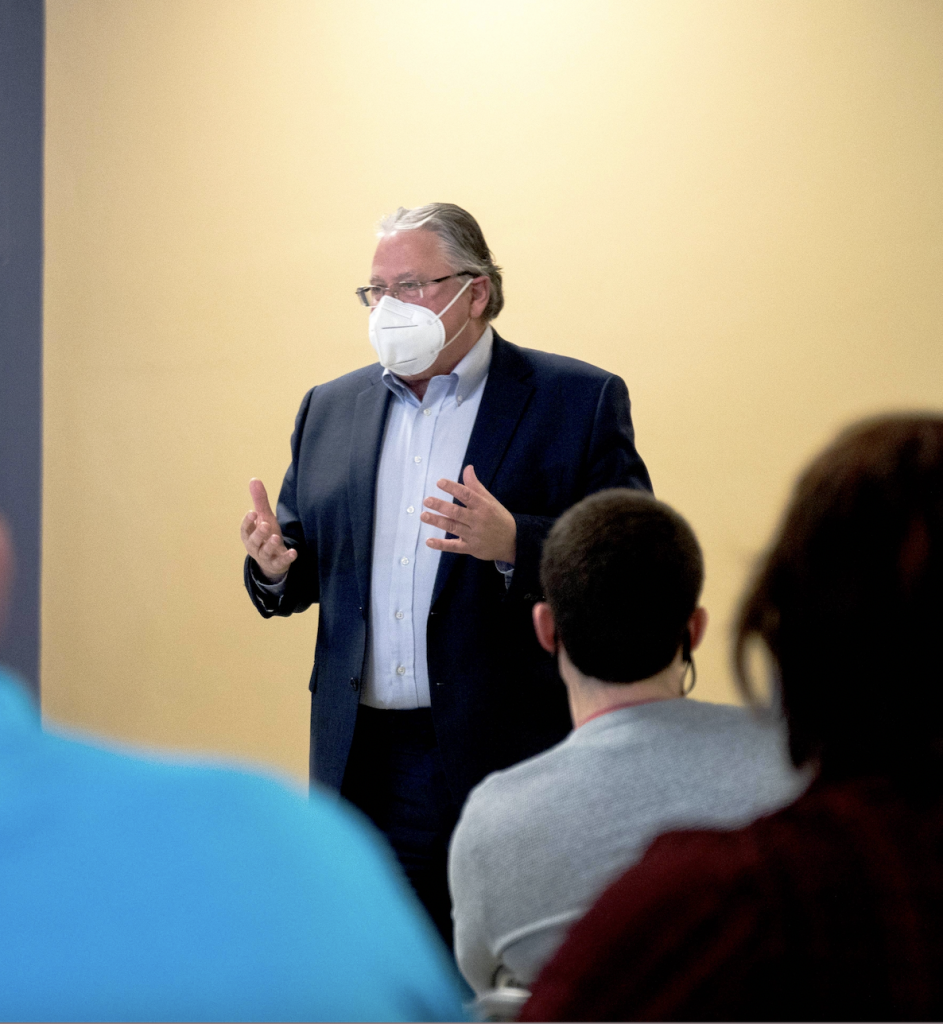Keeping alive a campus tradition since 2007 during COVID takes improvisation. Literally.
At the 16th annual Learning and Teaching Symposium, faculty and staff focused on improving communication in the classroom – by learning games, techniques and tricks used in improv comedy.
The workshop – presented by the Rochester-based Focus Theater in the Wick Social Room – was led by John Forrest Thompson, a special education teacher and adjunct professor at the University of Rochester, who trained at the legendary improv theaters iO Chicago and Second City.
“The secret to improv is simply reacting honestly in the moment – and supporting the ideas of others,” said Thompson.
The workshop also aimed to build skills related to active listening, collaboration, empathy, risk-taking, and being expressive.
“These skills allow you to focus on the moment,” he said. “It’s intimidating to get on stage and be on the spot. But we all do it – we’re all actors every day – in many settings, including the classroom.”
Teaching – a “fascinating” art
Returning a portion of the symposium to in-person was a deliberate and determined choice, said Hella Jacob, director of the Center for Excellence in Teaching & Learning (CETL) at Daemen, which sponsored the symposium.

“COVID has kept us isolated for too long – and one aim for this year was to build community through a shared experience.”Jack Peltz, faculty development director and an assistant professor of psychology. “We specifically focused on improv acting because it takes people out of their comfort zones, which is a critical step in building community.”
The symposium’s afternoon featured “hyflex” sessions that could be attended either via Zoom or in-person. Topics included new uses of education technology, creating classroom environments to facilitate difficult conversations, and others.
“What goes on in the space of a classroom is an art,” Michael Brogan, provost of the college, told those gathered.
“The transfer of skills, the use of emotional intelligence and contextual integration, enhancing our verbal and non-verbal communication in our teaching – it’s fascinating – and we can always learn more,” added Provost Brogan.
The hybrid format represented a conscious evolution in the CETL’s delivery of faculty development programming – after fourteen years of a traditional in-person event and last year’s fully virtual symposium.
“We tried something new,” said Jacob. “But we still aimed to highlight the pedagogical accomplishments of our faculty – and promote effective student learning.”
Especially topical was the afternoon presentation by Chris Brandjes, associate professor of theatre – titled “Masks in the Classroom (the fun kind) and How They Affect Interaction” – that is available on YouTube.
The session explored how “in the age of COVID-19, we’ve all become masked performers and have experienced some of the problems (and perhaps even some of the opportunities) associated with wearing masks.” The 30-minute presentation “offer[s] an overview of traditional theatrical mask work (especially Neutral Mask) – and how masks affect modes of expression – before exploring how we can improve our communication, in or out of the classroom, while masked.”
The symposium was established in 2007 by then-Director of Assessment Mimi Steadman, assistant vice president of academic affairs and strategic management, and then-Core Director Intisar Hibschweiler, professor of mathematics.
Focus Theater representatives also included Keith Gomez and Devin Hott.


